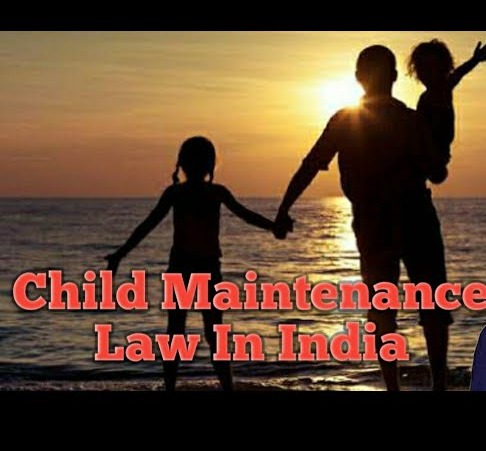McNair, J.@mdashThis is an application by a decree-holder that orders passed by the Court of Small Causes at Calcutta on the 6th and 11th March, 1935, should be set aside, and that Court directed to execute a rent decree which had been made on the 20th June, 1932, by the Court of the 2nd Munsif of Jessore. On the 20th July, 1934, there was an application for execution, and a notice was issued on the judgment-debtor under Or. 21, r. 22 of the Code of Civil Procedure. That notice was served on the 10th September, and thereafter the decree was transmitted to the Court of Small Causes at Calcutta for execution.
2. On the 25th January, 1935. an application was made for attachment, and on the 28th January certain movables were attached by the Registrar of the Calcutta Small Cause Court.
3. On the 31st January, the judgment-debtors applied for leave to pay the decretal, sum by installments, and on the 15th February, they applied for removal of the attachment on the ground of want of jurisdiction. Both the applications were ordered to be heard together.
4. The judgment-debtors then withdrew the application for payment by installments, and on the 6th March, 1935, the Registrar found in their favour on the second application. He held that the decree in question was passed in a suit brought under the Bengal Tenancy Act for recovery of Rs. 565 as arrears of rent in the Munsif''s Court at Jessore. The subject matter of such a suit in his opinion was exempted from the cognizance of the Small Cause Court in view of the provisions of sec. 19, cl. (W) of the Presidency Small Cause Courts Act. He held, therefore, that under Or. 21, r. 4 of the CPC that Court had no jurisdiction to execute the decree.
5. The matter went up before the Full Bench of the Small Cause Court, who upheld the Registrar''s finding and dismissed the appeal.
6. The matter has now been brought before this Court, and it is contended that the decisions of the Small Cause Court are wrong.
7. The first question which has been argued is whether the executing Court is entitled to question the validity of the order of transfer made by the transferring Court. The transferring Court, it is contended, has to decide whether the transfer can or cannot be properly made, and once having done so it is not within the powers of the Court to whom the transfer is made to reopen that order. If he is of opinion that the order is wrong, the unsuccessful party has a remedy by way of appeal.
8. In support of this contention reliance is placed on the case reported in Beerchunder Manikya v. Maymana Bibee ILR 5 Cal. 736 (1889). In that case the decree was made by the Munsif of Ramroygram and was transferred for execution from his Court to the Court of the Munsif of Beganganj. It was held that the Court to which the decree was transferred for execution should presume that the transfer would not have been made unless it were in order and that it had no jurisdiction to determine the correctness and propriety of the order sent to it for execution.
9. In delivering the judgment of the Court, Morris, J., said:--
If the Munsif of Beganganj thought that there was any farce in the objection of the debtor under sec. 65 and that sufficient cause was shown for so doing, he should have followed the course prescribed in sec. 239 of the Civil Procedure Code, and stayed the execution of the decree for a reasonable time, to enable the debtor to apply to the Court of the Munsif of Ramroygram.
10. That case has been referred to in a case reported in Mulla Abdul Hussein v. Sakhinaboo and ors. ILR 21 Bom. 456 (1896), as showing the limits of the functions of the Court to which a decree has been transferred. The same principle was enunciated in Ram Lal v. Radhey Lal ILR 7 All. 330 at p. 333 (1885).
11. The ratio decidendi of the learned Judges of the Small Cause Court was that sec. 19 (W) of the Presidency Small Cause Courts Act provides that the Small Cause Court shall have no jurisdiction in suits the cognizance whereof by the Small Cause Court is barred by any law for the time being in force. Sec. 144 of the Bengal Tenancy Act provides that:--
no suit between landlord and tenant as such shall be instituted in any Court other than a Court within the local jurisdiction of which the lands of the tenure or holding, as the case may be, are wholly or partly situated.
12. It is pointed out that a suit for rent under the Bengal Tenancy Act is of a peculiar nature and has peculiar characteristics which are enumerated in the Act, and a reference has been made to sec. 65, where it is provided that a tenure or holding shall be liable to sale in execution of a decree for rent, and that the rent shall be a first charge thereon.
13. These, it is said, are matters which have definitely been excluded from the cognizance of the Small Cause Court, and the contention is that the Small Cause Court could not have dealt with these matters as a trial Court and that it is, therefore, excluded from dealing with them as an executing Court. For this purpose reference is made to Or. 21, r. 4, which provides that where a decree has been passed in a suit of which the value does not exceed Rs. 2,000 and which as regards its subject-matter is not excepted by the law for the time being in force from the cognizance of either a Presidency or a Provincial Court of Small causes, and the Court which passed it wishes it to be executed, e.g., in Calcutta, such Court may send the relevant documents to the Court of Small Causes which shall thereupon execute the decree as if it had been passed by itself.
14. I have been referred to the cases of Gokul Kristo Chunder v. Aukhil Chunder Chatterjee ILR 16 Cal. 457 (1889) and Durga, Charan Mojumdar v. Umatara Gupta ILR 16 Cal. 465 (1889), where it was held that a Civil Court has no jurisdiction to execute a decree sent to it for that purpose under the old sec. 223 of the Code (which corresponds with Or. 21, r. 4), when a decree has been passed in a suit where the value of the subject-matter is in excess of the pecuniary limits of its ordinary jurisdiction.
15. These cases, however, do not deal with the other point which is raised in Or. 21, r. 4, namely, the question as to whether the executing Court is or is not entitled to deal with the subject-matter of the decree which has been transfer-red.
16. The question is a difficult one, and some of the decisions appear to me to be conflicting. But in my opinion, the applicant is right in his contention that the Small Cause Court is not justified in raising the question, once the transfer has been made.
17. If the parties wished to question the validity of the transfer, as I have already pointed out, they had an opportunity of doing so. Not having done so, in my view, the transfer must be taken to have been valid and the Small Cause Court should execute the decree which it has received. The Respondents will pay the costs of this application.

